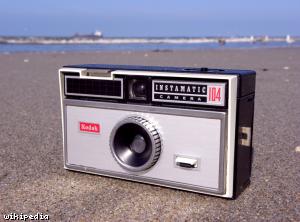
Marc Benioff, the founder and CEO of Salesforce.com, once remarked: “You must always be able to predict what’s next and then have the flexibility to evolve.” It would be easy to dismiss this piece of advice as overtly obvious. But as one of the most successful businesspeople in recent times, it would be wise to heed Benioff’s words.
To run a business is to understand that you must be constantly evolving. Evolving to the way customers are changing, the way the market is progressing and the way your competitors are developing. Standing still can quickly see you lose ground to rival businesses. But as important as it undoubtedly is to be constantly evolving, this is no easy feat, particularly for SMEs. Large enterprises can have whole teams dedicated to innovation; they even have specialist ‘incubator labs’ to create and develop the latest ‘game-changing’ ideas. However, amidst the day-to-day struggle for SMEs to simply keep the lights on, sticking their head above the parapet to think more long-term can be difficult.
This is reflected in the findings of the latest Close Brothers Business Barometer, which was released this month. The quarterly survey uncovered that two-fifths of small and medium-sized firms in the UK are unhappy with their current business performance. More specifically, they recognised that they need to do more to identify new growth opportunities.
The preoccupation with staying afloat meant they had not developed a strategy that would enable evolution. In such cases, mergers and acquisitions can prove to be an excellent option, for both the buyer and the bought.
The often-cited examples of mainstream companies failing to evolve are Kodak and HMV. In both instances the businesses failed to keep pace with the move towards the digital age and were rendered largely obsolete. Their insistence on sticking to what had always worked led them down a dead end, which could have spelled disaster for them; indeed it seemed it had.
In these cases, as in many examples, a timely acquisition could have made a telling difference. Should they have been bought out, someone could have come in with a fresh approach, a new perspective that would have steered the ship clear of the proverbial iceberg. Alternatively, had they been active in the M&A market, they could have bought a new business that would have offered them a new lease of life to develop down a different, more fruitful path.
You only have to look at the popularity for tech firms to buy smaller, more innovative start-ups, such as those populating the Tech City area in east London. In such a fast-moving industry, technology companies recognise the need to be constantly evolving more than most, that is why this vertical is always home to such a hive of activity, with bigger more established names snapping up smaller operations which could provide ‘the next big thing’.
Commenting on the aforementioned survey findings, Brian Dhenin, managing director of the broker division at Close Brothers, said: “While many firms are striving for growth our survey shows there are factors holding them back from achieving their full potential... Innovation is a critical part of many firms’ growth strategies and yet our survey has highlighted that the ability to be innovative is a stumbling block for many businesses.”
Having the time or talent to innovate around everyday business is always going to be a test for resource-limited SMEs. That is why inorganic growth can be such an attractive option – evolution through business acquisition can help bring in new ideas and enhance existing business models to provide competitive advantage. So in the business equivalent to Darwin’s survival of the fittest, M&As could prove as handy as opposable thumbs. 
Offering for sale this Japanese restaurant with alcohol license till late. The current owners have invested heavily in new equipment, fixtures and fittings. The ground floor & basement premises are significant in size and the new owner may consider d...
LEASEHOLD
Represents an opportunity for an acquirer seeking a retail outlet entailing a grocery, bakery and a busy off licence.
LEASEHOLD
Impressive single fronted premises all newly fitted approximately few years ago. Open plan kitchen area with stainless steel extractor system, stainless steel cladding to walls.
LEASEHOLD
Business Sale Report is your complete solution to finding great acquisition opportunities.
Join today to receive:
All this and much more, including the latest M&A news and exclusive resources
Please choose your settings for this site below. For more information please read our Cookie Policy
These cookies are necessary for our website to function properly and provide you with access to all features.
These are analytics cookies that help us to improve the way our website works.
These are used to improve the functional performance of the website and make it easier for you to use.
